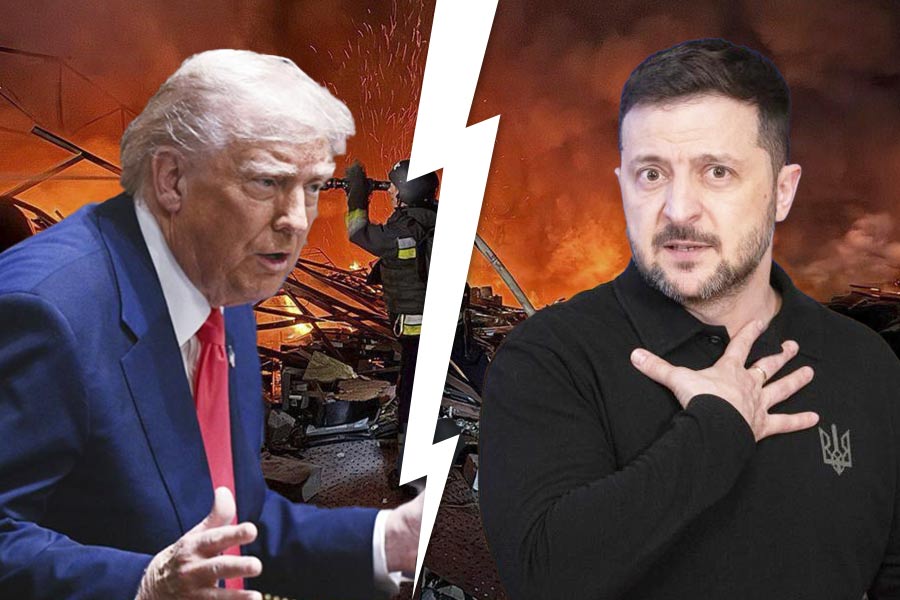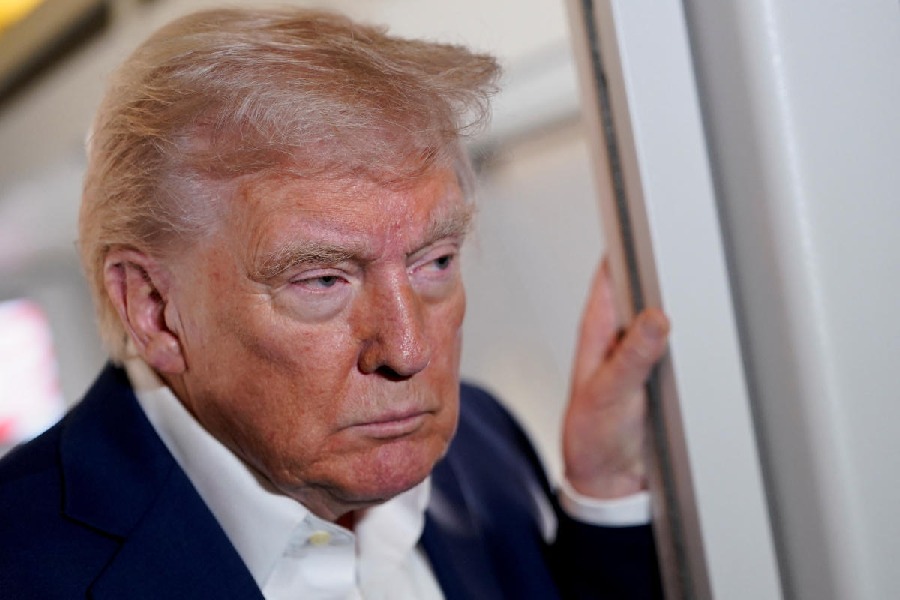The Trump administration is prepared to recognise Russian control over Crimea as part of a broader peace proposal aimed at ending the ongoing Russia-Ukraine conflict, according to a US official familiar with the framework.
The proposed concession marks a shift in American foreign policy and signals President Donald Trump’s increased eagerness to secure a ceasefire.
Both Trump and secretary of state Marco Rubio have expressed readiness to abandon the administration’s mediation efforts if no swift progress is achieved.
According to CNN, the peace proposal, which includes an immediate ceasefire between the two nations, was shared with European and Ukrainian officials during a meeting in Paris on April 18.
The framework, while incomplete, outlines potential measures to de-escalate the conflict and encourage negotiations.
One of the elements of the proposal is the US's reported willingness to acknowledge Crimea — annexed by Russia in 2014 following an invasion and referendum conducted under occupation — as Russian territory.
The international community has so far resisted recognising the annexation to avoid legitimising what is viewed as an illegal seizure of land by force.
Ukrainian President Volodymyr Zelensky has rejected any move to cede Crimea to Russia.
Speaking in Kyiv Thursday, he criticised Trump’s envoy, Steve Witkoff, for allegedly displaying a pro-Russian stance.
“We will never consider Ukrainian lands as Russian,” Zelensky declared. “There can be no discussion about our territory before a ceasefire.”
US secretary of state Marco Rubio and Russian foreign minister Sergey Lavrov have reportedly discussed the proposed framework over a call.
But Russian President Vladimir Putin has yet to agree to Trump’s vision for a broad peace agreement.
Rubio, speaking in Paris, underscored the urgency of determining whether a peace settlement is achievable.
“We need to determine very quickly now, and I’m talking about a matter of days, whether or not this is doable,” he told reporters before leaving Paris.
Trump echoed the sentiment, suggesting that if negotiations become too difficult, the US may walk away.
“If, for some reason, one of the two parties makes it very difficult, we’re just going to say, ‘You’re foolish, you’re foolish. You’re horrible people,’ and we’re just going to take a pass,” Trump said.
The Trump administration is also organising another meeting between their Middle East envoy Steve Witkoff and Russian officials to seek Moscow’s support for the peace framework, CNN reported.
The US plan presented in Paris proposes freezing current battle lines, relaxing sanctions on Russia if a permanent ceasefire is reached, and removing Ukraine’s bid for NATO membership from negotiations — a longstanding Russian demand.
The Paris discussions involved officials from the US, France, Germany, the UK, and Ukraine.
French President Emmanuel Macron and US envoy Witkoff reportedly held private talks on the logistics of peacekeeping and ceasefire monitoring in case an agreement is reached.
The Kremlin recently ended a 30-day truce and resumed attacks on Ukraine’s energy infrastructure.
Last week, a Russian missile strike killed 35 people in Sumy.
Despite US pressure, Kyiv has maintained that talks can only proceed if Moscow halts its attacks.
The US, along with European allies, is expected to continue consultations on the peace framework in London next week.











